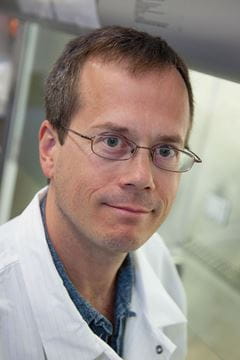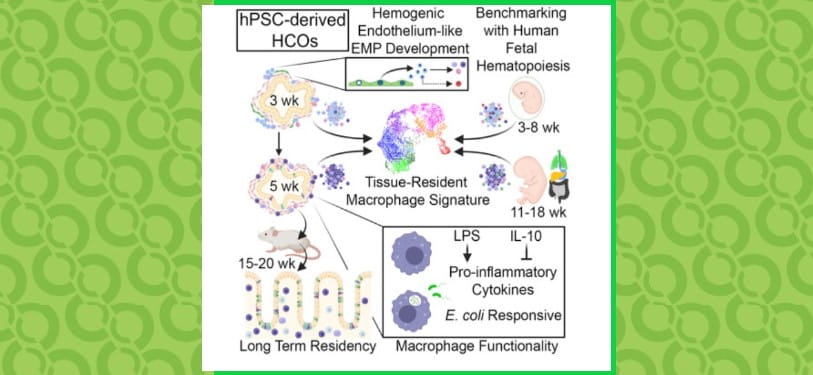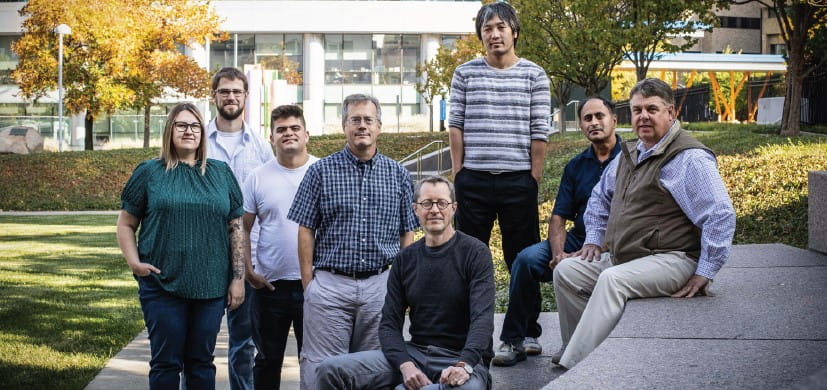
James M. Wells, PhD
- Director for Research, Division of Endocrinology
- Chief Scientific Officer, Center for Stem Cell and Organoid Medicine (CuSTOM)
- Professor, UC Department of Pediatrics
About
Biography
The focus of his teams basic research has been to identify the molecular mechanisms involved in the embryonic development of endocrine cells including pancreatic beta cells and tissues of the gastrointestinal tract. Their translational projects have focused on identifying new approaches to improve child health in several ways: 1. To identify and use embryonic pathways to generate complex, three-dimensional organ tissues from pluripotent stem cells, 2. Use these tissues to develop new in vitro human models for diabetes and digestive disease research and 3. Develop long-term, therapeutic strategies for cell and tissue-replacement therapies.
BS: Biochemistry, Molecular and Cell Biology, University of Maine, Orono, ME, 1987.
PhD: Graduate program in Genetics, SUNY at Stony Brook, New York, 1995.
Postdoctoral Fellow: Harvard University, Cambridge MA, 1996 - 2001.
Services and Specialties
Interests
Understanding the development of the pancreas, and gastrointestinal organs; generating 3-dimensional human tissues from pluripotent stem cells and using these as human models of diabetes and digestive disease.
For more information, please visit the CuSTOM web page.
Publications
Exploring optimal protocols for generating and preserving glucose-responsive insulin-secreting progenitor cells derived from human pluripotent stem cells. European Journal of Cell Biology. 2024; 103:151464.
A Pillar and Perfusion Plate Platform for Robust Human Organoid Culture and Analysis. Advanced healthcare materials. 2024; 13:e2302502.
RFX6 regulates human intestinal patterning and function upstream of PDX1. Development (Cambridge). 2024; 151:dev202529.
Organoids in endocrine and metabolic research: current and emerging applications. Nature Reviews Endocrinology. 2024; 20:195-201.
Changing the public perception of human embryology. Nature Cell Biology. 2023; 25:1717-1719.
Development of functional resident macrophages in human pluripotent stem cell-derived colonic organoids and human fetal colon. Cell Stem Cell. 2023; 30:1434-1451.e9.
In vivo development of immune tissue in human intestinal organoids transplanted into humanized mice. Nature Biotechnology. 2023; 41:824-831.
Transplanted human intestinal organoids: a resource for modeling human intestinal development. Development (Cambridge). 2023; 150:dev201416.
Nonsense mutation in the novel PERCC1 gene as a genetic cause of congenital diarrhea and enteropathy. Human Genetics. 2023; 142:691-696.
Enteroendocrine Cells Protect the Stem Cell Niche by Regulating Crypt Metabolism in Response to Nutrients. CMGH Cellular and Molecular Gastroenterology and Hepatology. 2023; 15:1293-1310.
From the Blog
Gastrointestinal Organoid Medicine Featured in Science Podcast
James M. Wells, PhD2/15/2024
First the Small Intestine, Now the Colon has an Organoid with an Immune System
James M. Wells, PhD11/17/2023
Novel Approach Generates Most Complex Stomach, Esophagus Organoids to Date
James M. Wells, PhD, Michael A. Helmrath, MD ...2/8/2023
New Assembly Approach Generates Most Complex Stomach Organoids to Date
James M. Wells, PhD12/1/2021
Organoid Expert James Wells, PhD, Joins Journal as Academic Editor
James M. Wells, PhD7/12/2021
World’s First Three-Organoid System Opens Doors for Medical Research and Diagnosis
James M. Wells, PhD, Takanori Takebe, MD, PhD ...3/22/2021









